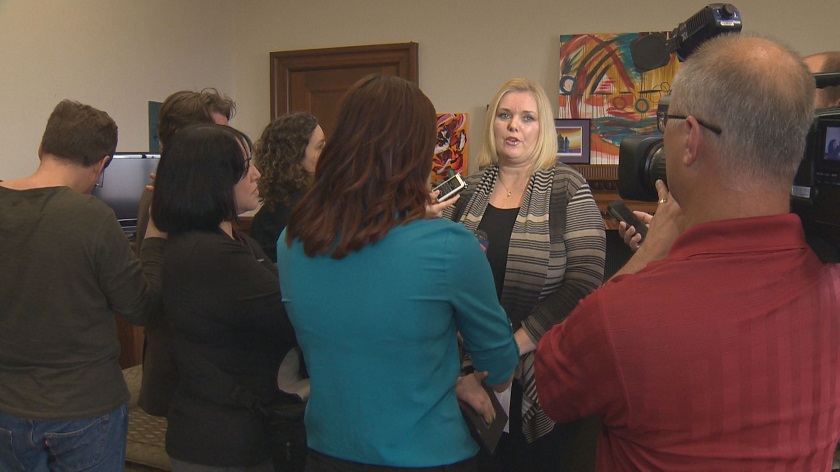WINNIPEG — Manitoba’s new First Nations family advocate says Manitoba doesn’t treat children in care and their families as “human.”

Cora Morgan, who was appointed by the Assembly of Manitoba Chiefs last week, said the province’s child welfare system is broken. Child and Family Services are taking children into care too quickly and it’s virtually impossible for parents to regain custody.
RELATED: Manitoba kids in CFS care have poorer educational outcomes: study
Children in care are being put up in hotels and languishing in jail without a proper support system for families in crisis that would prevent kids from being apprehended in the first place, she said.
“There is a lack of humanity in the way that CFS operates,” Morgan told The Canadian Press. “These children in care and these families, I don’t see that they’re being recognized as human.
“Every single individual needs to feel loved. Where do you find that growing up in a hotel room?”
Manitoba has more than 10,000 children in care and the vast majority are aboriginal. The system has been under scrutiny for years following several high profile deaths and assaults of children in care.
Most recently, Family Services Minister Kerri Irvin-Ross tearfully promised to stop using hotels to house kids in care after a young girl was seriously assaulted in March. Both the victim and the youth charged in the assault were in the care of Child and Family Services at a downtown Winnipeg hotel.
RELATED: Boy, 15, charged in attack on girl in CFS care
The child welfare system came under fire last August when 15-year-old Tina Fontaine was killed after running away from a hotel where she was in government care. Her great-aunt had contacted child welfare when she had difficulty managing the teen. The teen’s body was found wrapped in a bag in the Red River.
Many guardians reach out to family services for help, only to have their child taken, Morgan said. Some parents are prepared to do what it takes to get their children back but, they aren’t supported by addiction and parenting programs, she added.
Morgan said she has encountered up to six generations of a family who have grown up in care. That cycle must be stopped. The province must involve aboriginal people and support community-based alternatives to apprehension, she said.
“When newcomers first came to this land, they didn’t understand us then and they started imposing the creation of reserves and residential schools,” Morgan said. “After all these decades, they’ve created people that they still don’t understand because there is so much damage to our identity and our ability to care for our children.”
Grand Chief Derek Nepinak, with the Assembly of Manitoba Chiefs, said the provincial child welfare system is carrying on the legacy of residential schools. Chiefs created the office of the First Nation family advocate to give aboriginal families a voice in a system that threatens their children and perpetuates the cycle of inter-generational trauma, he said.
“We have to meet the system head on. It’s escalating and it’s out of control.”
Irvin-Ross was unavailable for an interview. Her spokeswoman, Rachel Morgan, said in an emailed statement that the province agrees children belong in loving families in their own communities.
“We have begun moving toward a system of supporting families and supporting communities so that children don’t have to be taken into care,” she wrote.
“We know there’s more to do and we’re committed to working with the Assembly of Manitoba Chiefs, First Nations leaders and communities to reduce the number of children in care.”



Comments